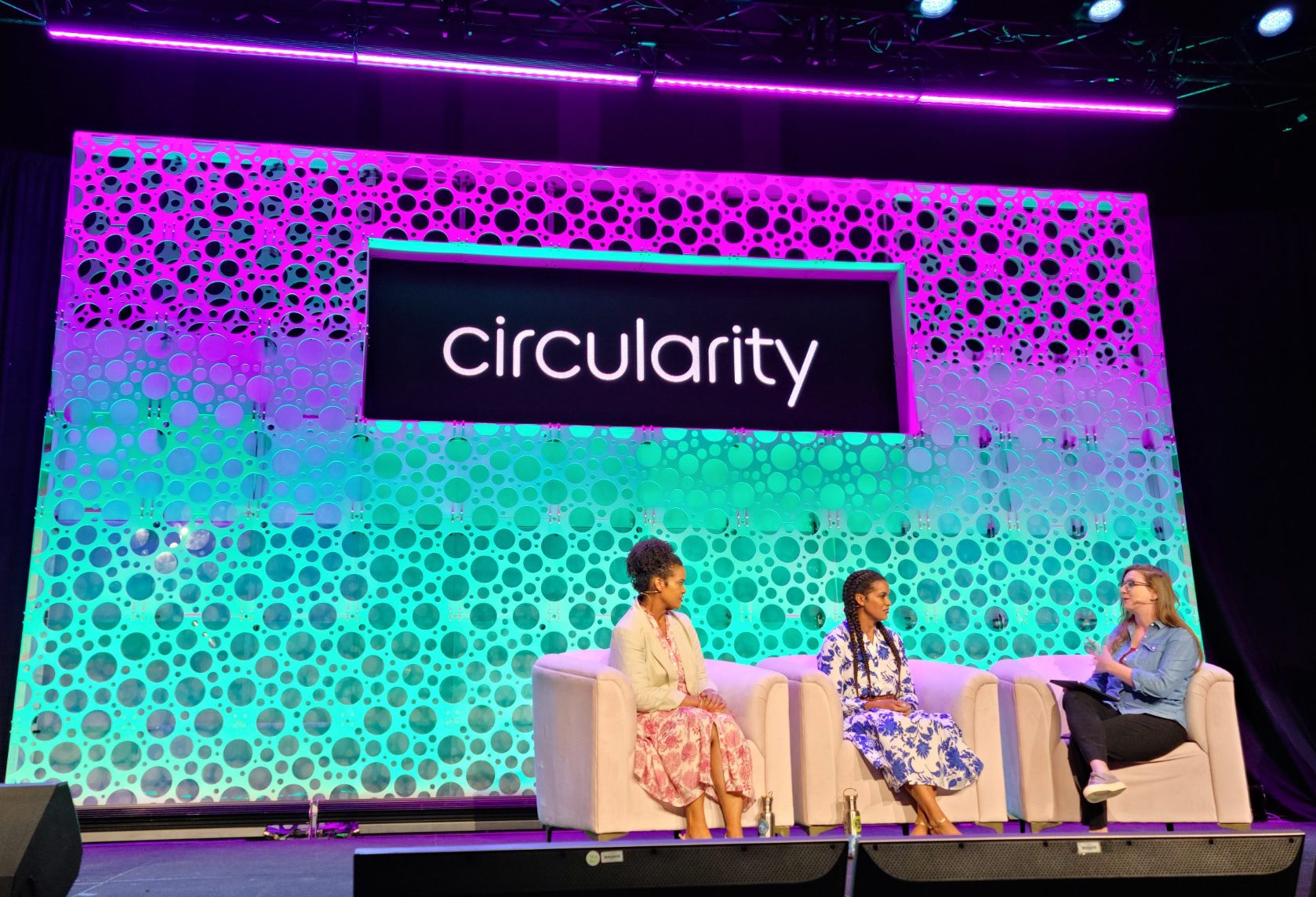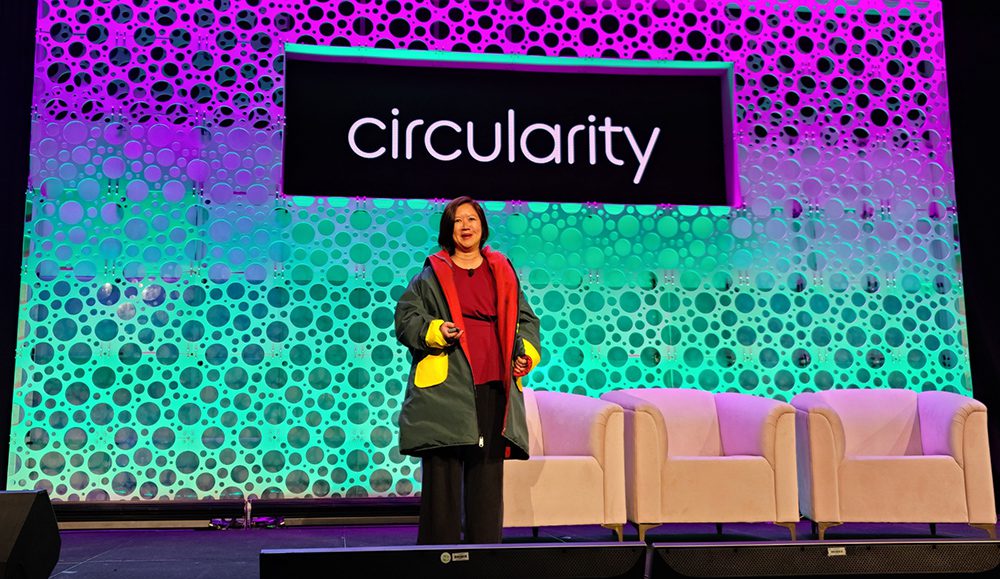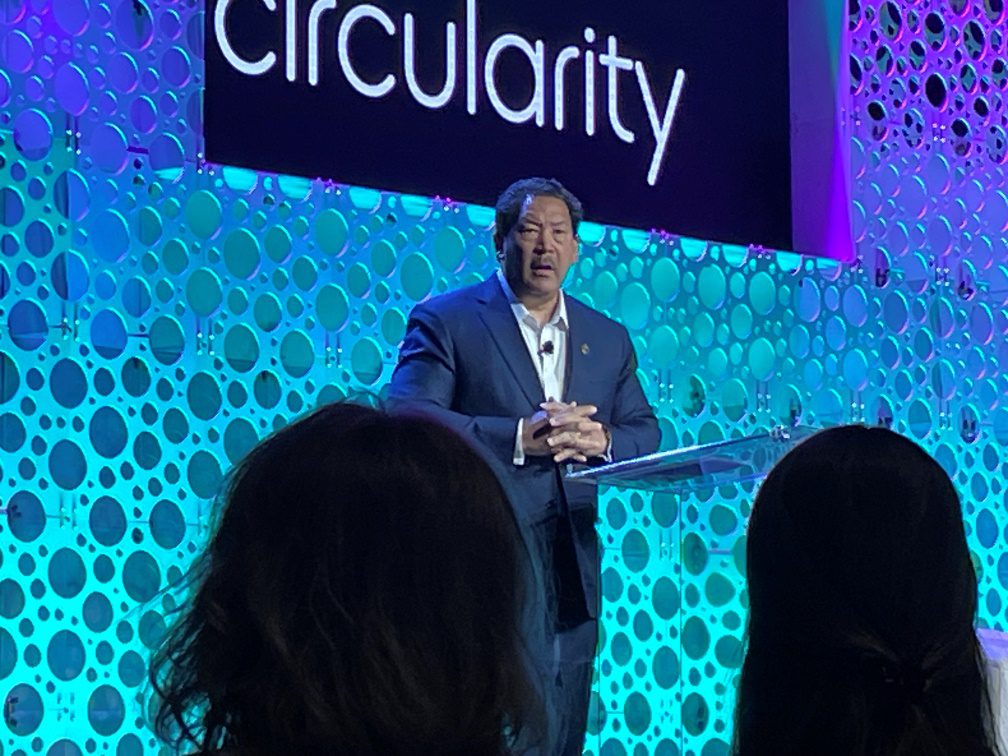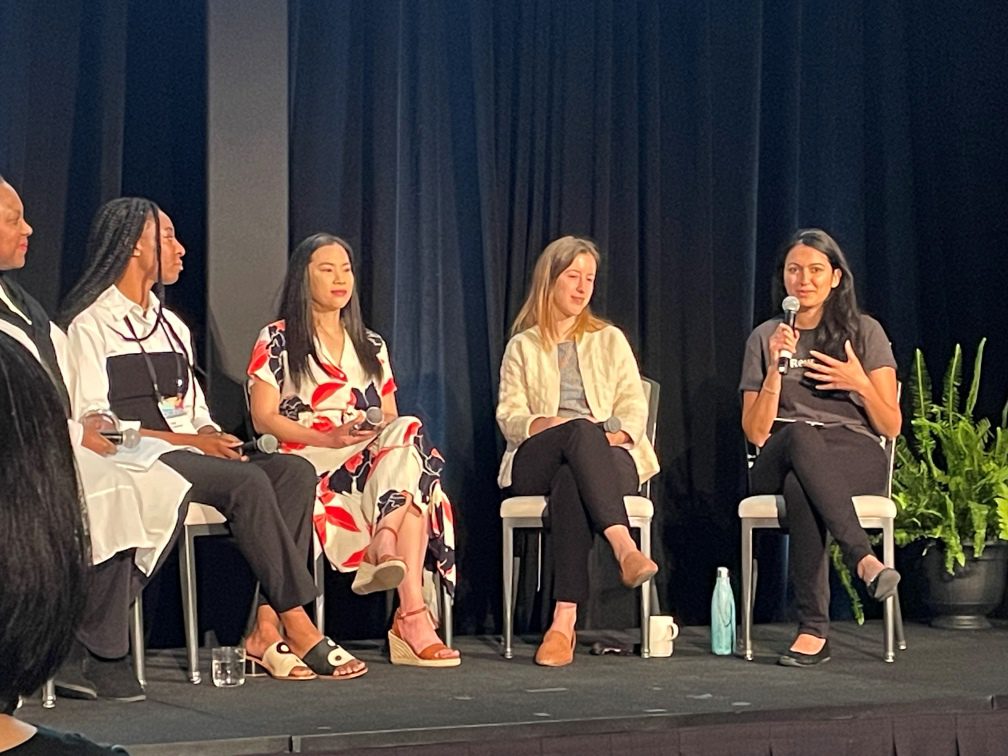
Seattle Public Utilities (SPU) joined about 1,500 leaders this week at Circularity 23, a national convening held this year in Seattle to spotlight and add greater momentum to waste reduction strategies to address climate change and pollution.
The convening – which attracted top City of Seattle and Washington state government officials as speakers, as well as business leaders, professionals, and community members – consisted of mainstage talks and panel discussions about “circular economies” – ones that reduce waste through reusing, repurposing, and recycling.

These types of economies emphasize eliminating waste by keeping resources and items – such as building materials and beverage cups and utensils – in circulation for longer periods of time. These steps will help cut greenhouse gas emissions that cause harmful climate change and hurt communities in Seattle and the nation.
“Instead of a linear ‘take, make, waste,’ economy, where we take things from the ground, make them, and throw them away, a circular economy encourages things like waste prevention, repair, reuse, and recycling,” said Ashima Sukhdev, SPU’s Climate Mitigation and Circular Economy Policy Advisor.
Gov. Jay Inslee, Mayor Bruce Harrell, and SPU General Manager and CEO Andrew Lee spoke at the convening, the largest event of its kind in the nation for “circular economy” and zero waste professionals.
Increasing Seattle’s “circular economy” is part of the City of Seattle’s and SPU’s climate change strategy and the Utility’s “Community Centered, One Water, Zero Waste” vision. By 2030, SPU is striving to reduce solid waste emissions by 58% from 2008 levels.
At Circularity 23, Reuse Seattle, a consortium that includes SPU, won the Reusies 2023 Community Building Award. Reuse Seattle received the award for bringing reusable food and beverage containers to residents and local businesses. Examples include beverage cups at concert venues that can be washed, sanitized, and reused hundreds of times, and reusable coffee tumblers at cafes.
Reuse Seattle has succeeded in implementing reusable items for food service at more than 20 locations and reducing more than 350,000 single-use cups.
Seattle is a national leader in the “circular economy” with its long-standing residential recycling and composting, food waste prevention and rescue programs, reuse efforts, and support for businesses that engage in such activities. These efforts help inspire economic development, entrepreneurship, innovation, and equitable green jobs.
The City of Seattle sponsored this year’s national convening, which was held from June 5 to 7. SPU was among the key event partners. City and SPU staff members worked with conference organizers to ensure Seattle community leaders and residents were part of Circularity 23 and that local stories were shared in talks and discussions.

